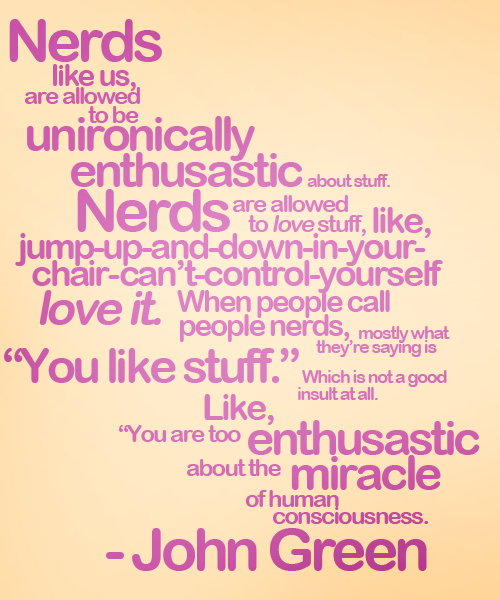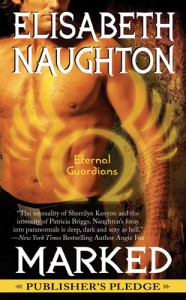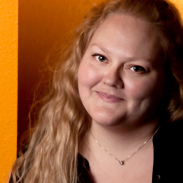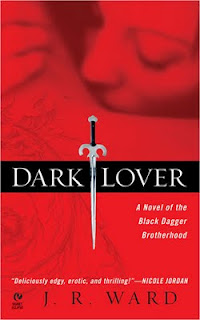Welcome back to genre Monday! My good friend Julie Cross has an awesome, impassioned post for you this lovely Labor day. And Julie knows of which she speaks. Not only is she debuting with her YA Thriller, TEMPEST, in January, but she really does devour YA books. She's always full of great recommendations for me. So over to you, Julie...
Direct Message To YA Writers: Read It, Or Don’t Bother Writing It
Oh boy, you guessed it. I’m not planning on being cute and fluffy today. I can already hear many of you forming your arguments just from reading the post title. Since I’m taking the direct approach today, I’m gonna say, “Save it” and hear me out. We can play debate team later in the comment section. Roni will love that.
I’m not going to go into what determines that a book be categorized as YA versus Middle grade, versus Adult. Agents and editors are the best people to answer those types of questions. Besides, you’ve already decided that you’re writing YA. And right now, it seems EVERYONE and their grandmother is writing YA.
WHY DID I CHOOSE THIS TOPIC?
I can’t even tell you how many unpublished writers I’ve chatted with, whether in person or through crit sessions, that have decided YA is for them and when I ask them, “Oh, have you read….”and I either get, “No, never heard of it, but I LOVED Twilight” or even, “No, but I hated Twilight so…” And then you get the rare few (and I say rare because most of these writers wouldn’t bother talking to someone like me who wastes time writing *gasp* commercial fiction), the intellectuals, the ones who are determined to create the next Catcher In The Rye and are so above anything non-literary and couldn’t possibly rot their mind on something like, Vampire Academy. But…in my most honest, uneducated, yet credible opinion…
If you plan to be successful at writing YA and possibly pursue publication, you had better make time to read current YA books. It’s just as important as writing that synopsis (yuck!) and finishing that last chapter. Books are cheaper than writing conferences and until you are very well read in the genre, you’re gonna learn more from reading than any workshop could teach you. Since I have a gymnastics coaching background, I’ll use this analogy: even the best trained dancer…someone who had years and years studying dance forms in every country and at every college…heck, even Mia Michaels and Adam Shankman, if asked to choreograph a gymnastics floor routine, will have to actually watch a gymnastics floor routine to do this well…probably a whole lot of floor routines. Yes, they are essential creating a dance routine, but it’s a unique area that a choreographer must become familiar with in order to:
1) Make it authentic and correct
2) Create something original that will stand out against hundreds or thousands of other routines. Remember how I said everybody and their grandmother is writing YA?
WHO ARE YOU WRITING FOR?
Please, please do not say, teens! And if you did, that’s okay, it’s what I’m here for. I was recently asked the question in a group debate situation, by a pre-published YA author if we (the group) thought it would be okay for her to use the F-bomb in her book…just once…the character was in a situation of serious distress and no other words fit. No, we’re not going to open the giant can of worms that is the great “YA Content” debate. But that is what stemmed from her question, people debating whether it was appropriate for a YA book in general. My first thoughts, however, had nothing to do with any moral obligations a writer may or may not have to the reader.
1)As a writer, you should know your character well enough to know whether that’s what they’d say in that moment. First and foremost—always be true to your characters. Wait…I can hear you debaters now…you’re ready for this one, aren’t you? And it’s gonna sound something like this:
Side A:
There’s too much violence, bad words and sex in teen books! Leave it out!
Side B:
Just say no to censorship!
This debate is not happening or important right now…which leads to my second thought when asked this question:
2) Who’s the audience? Saying it’s a teen book isn’t specific enough. Here’s why: Let’s say this author’s story is the sweet and syrupy novel equivalent of a Disney Channel Original Movie (which I’m a total sucker for). If she throws in an F-bomb, the book is now not appropriate for the 10-12 year olds that may have really enjoyed the High School Musical on a space ship story. And hand that book over to a group of 16-17 year olds and there will be nothing, but eye rolling.
Now, on the flip side, if this is an edgy story with some serious and mature issues and you are scared to let the character say the F word in a life or death moment and throw in something like, “Oh fiddlesticks”….uh, yeah, that’s not gonna fly. I’m sure there are other alternatives, but I just wanted to give you an idea of how large the audience span is within the YA genre and how you need to know who you’re writing for and make sure the story is consistent with that throughout. One way to help figure this out is to read a wide range of YA books, especially the ones geared toward a different audience than you might be aiming for.
As much as we all want to be completely original, editors and agents will need to directly compare your book to another currently published book... fans of John Green will appreciate this story ...or something along those lines.
Believe me, I realize every YA writer would love to create a story that 10-30 year olds would eat up, but the reality is, we can all probably count on our hands how many times that has happened in history *cough* Harry Potter. Writing in the adult genre is easier in a lot of ways because your audience can just be, “females who like romance, aged 20 and up.” For younger readers, they change so much between 10 and 13 years old and then again between 14 and 17 years old. You’ll have a much stronger story if you get more specific about your audience. Other wise you may end up writing a watered down version of something that might have been good for upper YA readers or “new to middle school kids.”
If you are committed to becoming a better YA writer, than I’m going to challenge you right now and suggest you read at least one book from each list…remember this is educational. This is essential. Repeat that three more times, so you don’t feel guilty about taking time to read instead of revising draft 28 of your query letter. Now, I’m sure some of you are great about keeping up with the latest YA trends and reading plenty of books. But even I catch myself avoiding certain types of YA, thinking I might not like it and have to give myself that little nudge to expand my horizons. It’s all about growth. I would love to hear from any of you who take this leap and pick up some YA books. My very favorite past time is talking books with people.
And even though this is a little harsh, I feel like I have to say it: if any of you read a BUNCH of these suggested books and find that you don’t like them because the characters are immature, over-dramatic and you can’t understand or relate to them, then there’s a good chance you might be writing in the wrong genre. There are exceptions, of course, but remember these books were picked up and loved by the same agents and editors you’ll be seeking out on your path to publication. As Shakespeare so wisely said, “To thine own self be true.” Write what you know and feel passionate about.
**just so you know, no one paid me to plug their books…it’s completely from my own personal favorites list.
YOUNGER YA
: Appropriate for ages 10-12 and older
**these are harder to find so please feel free to add to this list. I won’t specify ages on other lists
Paranormalacy by Kiersten White
Hunger Games by Suzanne Collins
Ally Carter’s Gallagher Girl series and also Heist Society series
CONTEMPORARY EDGY UPPER YA
(lots of “issue” books)
*FYI-this is my very favorite subgenre!
Story Of A Girl by Sara Zarr
Thirteen Reasons Why by Jay Asher
Some Girls Are by Courtney Summers (read how Courtney changed my writing here)
Winter Girls by Laurie Halse Anderson, also Speak—her most widely known title
Crash Into Me by Albert Borris
Clean by Amy Reed
What-If-I-Don’t-Like-Twilight YA Paranormals
**if you are a fan of Twilight, you’ll probably like these too
Vampire Academy series by Richelle Mead
Shiver by Maggie Stiefvater (Also Linger and Forever)
Personal Demons by Lisa Desrochers
MALE POINT-OF-VIEW YA
(I'm so surprised with how many people are looking for these!)
Stupid Fast by Geoff Herbach
Twisted by Laurie Halse Anderson
Invincible Summer by Hannah Moskowitz
Break by Hannah Moskowitz
I Know It’s Over by C.K. Kelly Martin
Paper Towns by John Green, also Looking For Alaska (I haven’t read that one yet)
Where She Went by Gayle Forman (this is the 2nd book in a series, see “sob worthy” list below)
*cough*
Tempest by Julie Cross (sorry, just had to do it)
YA DYSTOPIAN FOR PEOPLE WHO MIGHT NOT LIKE DYSTOPIAN
Divergent by Veronica Roth
Delirium by Lauren Oliver
Uglies series by Scott Westerfeld
Bumped by Megan Mccafferty (hilarious!)
SOB INDUCING EMOTIONALLY BEAUTIFUL YA
*also a favorite of mine and reading these deep stories helped me add emotional layers to my sci-fi trilogy…so, even if tear-jerkers aren’t your thing, you can use it in other types of stories to create something that sticks with readers long after that final page.
The Sky Is Everywhere by Jandy Nelson (might even please the literary fans!)
Before I Die by Jenny Downham (This is British...and I LOVE a good English book)
Twenty Boy Summer by Sarah Ockler
If I Stay by Gayle Forman
Cracked Up To Be by Courtney Summers
Harmonic Feedback by Tara Kelly
ROMANTIC, FUNNY, GIRLIE, COMING-OF-AGE YA
Along For The Ride
by Sarah Dessen
Anna And The French Kiss
by Stephanie Perkins
The Summer I Turned Pretty
by Jenny Han
Tangled
by Carolyn Mackler
The Boyfriend List
bye. lockhart
Any And Roger's Epic Detour
by Morgan Matson
Two-way Street
by Lauren Barnholdt
Nature Of Jade
by Deb Caletti
And Then Things Fall Apart
by Arlaina Tibensky















